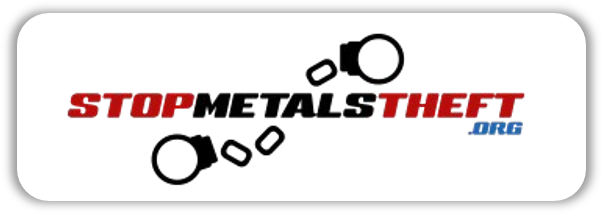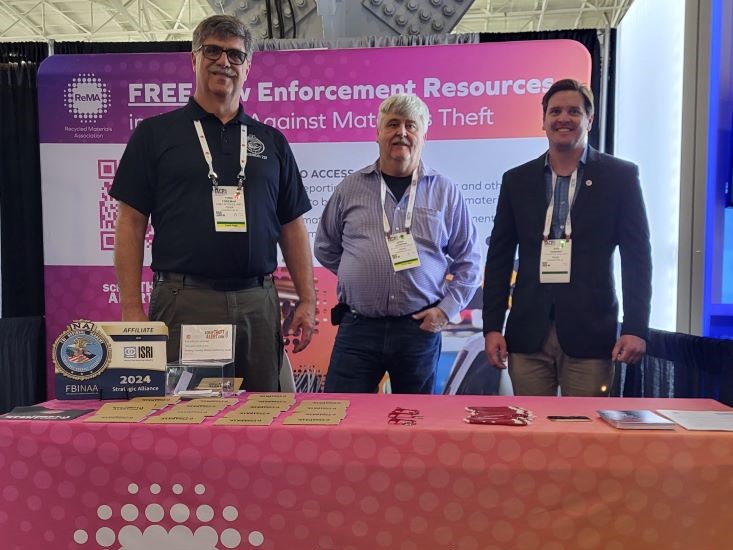Stopmetalstheft.com
Commonly Requested ReMA State Metal Theft Law Reports
ReMA’s Commonly Requested State Metal Theft Law Reports allow you to quickly compare key provisions of laws between states. Just select the report you’d like to view, check the states that you’d like to compare, and select whether you’d like to view the report in your web browser or download it as a spreadsheet or PDF.
The reports are intended to provide brief overviews of specific provisions; exemptions and special rules may apply. Please pay careful attention to the Materials Covered and Exemption Provisions Reports. We’ve included the most commonly requested reports below, but if you can’t find what you’re interested in you can use the Custom Reports to build your own comparison!

Download reports
Statute Reference Report
Provides the statute references and any recent amendments along with links to the state laws online.
Get This Report
Exemption Provisions
A quick way to check which materials, transaction types, and entities are exempt in your state.
Get This Report
Materials Covered
Each state law has its own unique definitions of what metals are subject to the metals theft statutes. Use this report to check what the terms mean!
Get This Report
Statement or Proof of Ownership Requirements
Many states require a seller to sign a statement that they own or have the right to sell metal before a recycler can purchase it; additionally, some states require some form of documentation or proof of ownership for certain transactions.
Get This Report
Fingerprint Requirements
Does your state require recyclers to record the seller’s fingerprints before completing a transaction? Use this report to find out!
Get This Report
Seller Notice Requirements
Some states require recyclers to post a sign or include a notice with the transaction containing specific information on the law for the seller. This report includes the notice text and any statutory requirements for the display.
Get This Report
Inspection Requirements
Many states include specific provisions in their statutes for when law enforcement agencies (and other entities, if allowed) may inspect a recycler’s transaction records and/or purchased material covered by the state’s metal theft law. These states often allow for inspections without a warrant.
Get This Report
Reporting Requirements
It is important to carefully review statutes with reporting language because reporting requirements are not universal and state reporting requirements vary greatly in both the specifics information to be reported as well as the timing and method of reporting.
Get This Report
Automatic Hold and Hold by Request Requirements
Provides the conditions triggering hold requirements on certain materials, the time period for the hold, and information on whether the recycler must tag the materials.
Get This Report
Maximum Cash Thresholds and Payment Requirements
While some states allow cash for any metals transaction, others place restrictions ranging from no cash for any metals to specific requirements for certain materials or sellers.
Get This Report
Licensing, Registration and Permitting Requirements
Do recyclers in your state need a license to operate, or do they need to register with a state agency or sign up for MetalTheftAlert.com? Check here to find out!
Get This Report
States With Preemption
Provides information on which states have included full or partial preemption over local ordinances in their laws.
Get This Report
StopMetalsTheft.org
Stay Informed. Take Action. Prevent Theft.
Discover essential tools on state metals theft laws, theft alert systems, industry insights, law enforcement strategies, and more to fight against metals theft.
Laws
ReMA’s State Metal Theft Law Database helps visitors understand laws with pre-made or custom reports on the provisions and states that interest them.
FAQs
Questions about StopMetalsTheft.org or metals theft in general? Our FAQ page has answers to some of the most asked questions about this important resource.
Prevention
Tools and prevention techniques that limit the opportunity for the theft of metals, developed with crime prevention experts.
Resources
Tools and prevention techniques that limit the opportunity for the theft of metals, developed with crime prevention experts.




